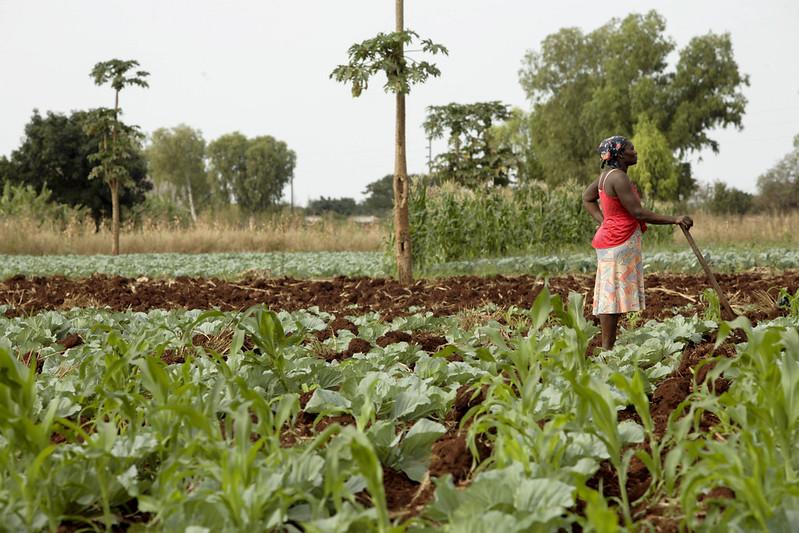GIIF in Mozambique: Advancing Agriculture Insurance with Hollard Mozambique

Mozambique is primarily an agricultural economy with more than 75% of the population engaged in rainfall-dependent farming, the majority of whom are smallholder farmers (USAID, 2018). While agriculture contributes to 25% of the country’s GDP, due to Mozambique’s unique location and geography, it is subject to various climate risks such as drought in the southern part of the country, cyclones in the coastal areas and flooding during the rainy reason (IGC, 2019). Most of the smallholder producers have been perilously unprotected against climate change-induced crop failures.
GIIF’s engagement in Mozambique dates back to 2011 when agriculture insurance was almost non-existent in the country and an insurance pilot was experimented in select districts to create a framework for future expansion in the agricultural sector. Guy Carpenter, an international reinsurance broker, in conjunction with the catastrophe modeling firm Risk Management Solutions (RMS), formed a consortium to design first insurance coverage for maize and cotton farmers. The project was implemented through a synchronizing public-private partnership in a multi-stakeholder approach. The success of cotton insurance attracted investors and lenders to the value chain, providing more opportunities to smallholder farmers whose livelihoods depend on cotton that accounts for 20% of the country’s total agricultural exports. Cotton and Oilseed Institute (IAOM) (formerly Cotton Institute of Mozambique) wanted to extend the insurance coverage to all producers to mitigate the impact from drought and other adverse weathers. For more information, please visit here.
In 2017-2018, GIIF worked with the Ministry of Land, Environment and Rural Development (MITADER) to conduct an Insurance Feasibility Study over four priority crops - beans, cotton, maize, and cashew nuts. Results from the study were disseminated during a stakeholder workshop in Maputo in August 2018, shedding light on farmers’ willingness and ability to pay for insurance premiums as well as viable delivery channels. Based on the study, Hollard Mozambique was selected as the implementing insurer with financial and technical support from GIIF to de-risk smallholder farmers through insurance coverage and improve overall agriculture productivity. The multi-line insurer, subsidiary of the Hollard Group, subsequently launched a dedicated Agricultural division to provide sector-specific risk solutions. The primary product design is seed replacements where payment is triggered based on satellite data (e.g. a lack of rain early in the season) and insurance is bundled with seed purchase from partnering input providers. To date cumulatively, Hollard insurance managed to develop and deliver risk solutions against drought and excess rain for approx. 17,000 farmers, reaching out to close to 85,000 end-beneficiaries with insurance coverage.
One persisting challenge is low levels of insurance awareness and literacy in agrarian communities. Generally, no preventive action in agriculture is taken to face the risk of adverse weather events. In order to get buy-in from end-beneficiaries, there is an urgent need for tailor-made sensitization sessions among farmers on financial education as well as training programs on agricultural risks and resilience. Hollard Mozambique is in the process of finalizing a new storybook for education campaigns leveraging African traditional folklore stories (Ngano / karingana wa karingana) to help understand climate risks and use insurance policies properly.
During the COVID-19, Hollard Mozambique has operationalized a COVID-19 Committee as part of Business Continuity Planning to implement appropriate risk control procedures. Due to travel restrictions, the insurer supplements limited face-to-face trainings with community radio to communicate with farmers. The pandemic, however, has increased the insurer’s appetite for the agriculture line of business as a portfolio diversification strategy as well as a social impact goal to serve low-income customers; they estimate to launch a new product covering livestock in November 2021. In addition, because satellite technology is used to remote sense covered farms, fieldwork is reduced compared with other insurance products that require on-site risk assessment and loss verification. The company is now investing in creating a robust digital infrastructure including digital enrollment by working with several services and platform providers. The goal is to digitalize high-resolution data in a dynamic database and enable real-time risk assessment at the individual plot, village cluster, and portfolio levels. Improved data collection and risk monitoring are expected to help innovate insurance offerings to increase client value. Hollard Mozambique is taking concrete steps to develop and deploy end-to-end technology solutions in the entire insurance process from enrollment to claims settlement as a future-oriented, cost-effective way to serve farmers.
Photo Credit: John Hogg / World Bank
